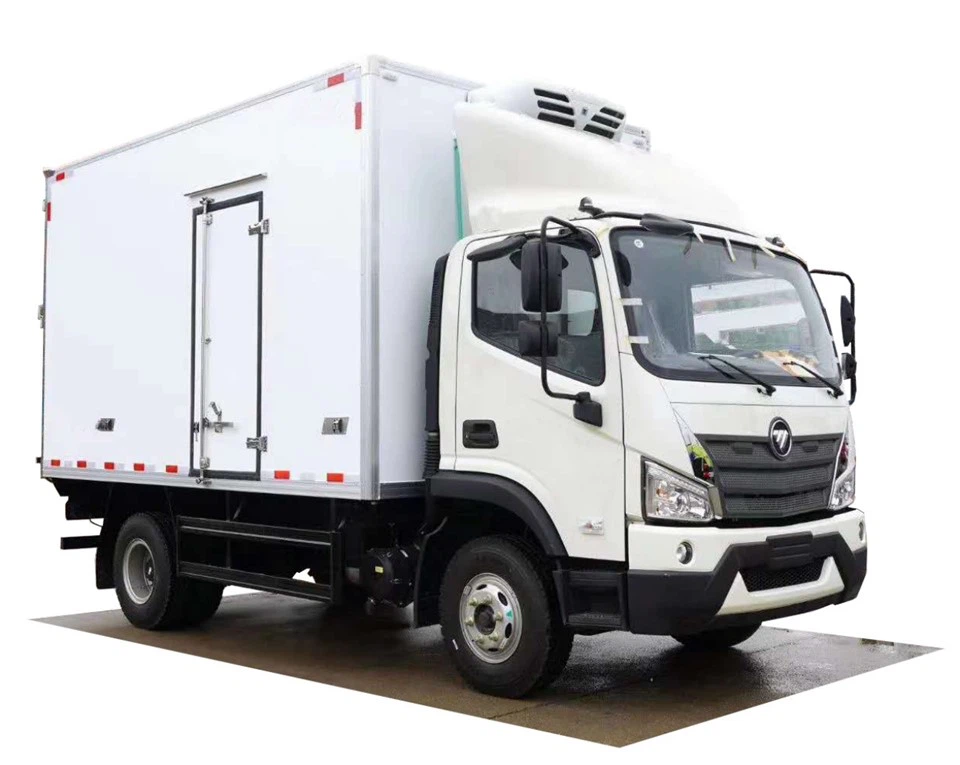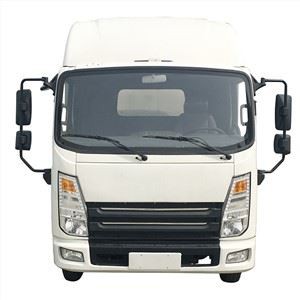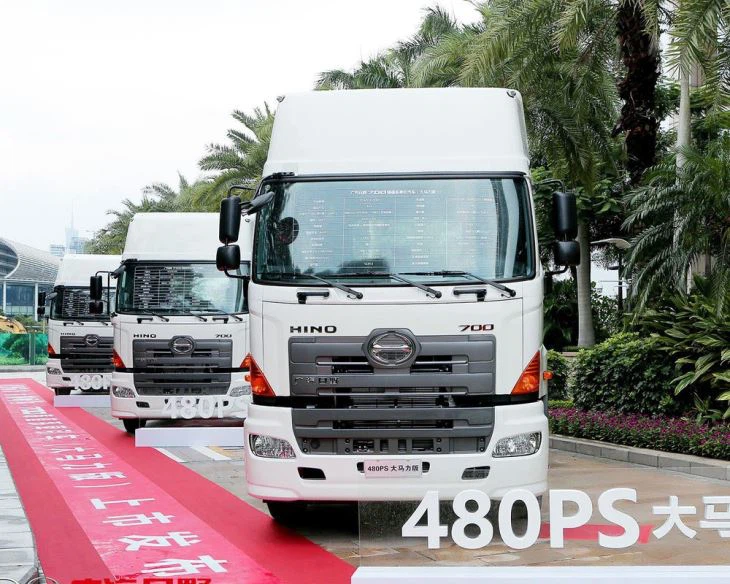Refuse Trucks for Sale: Finding the Right Truck for Your Waste Management Needs

In today’s world, managing waste effectively is more crucial than ever. With an increased focus on sustainability and efficient waste disposal, refuse trucks play a vital role in urban infrastructure. This article provides a comprehensive guide on refuse trucks for sale, helping you make an informed decision. Whether you are a municipal buyer, a private waste collection company, or looking to start your own waste management business, understanding the options available will ensure you choose the right refuse truck for your needs.
What Are Refuse Trucks?
Refuse trucks are heavy-duty vehicles specifically designed to collect and transport waste materials. Unlike standard trucks, refuse trucks come equipped with specialized bodies and mechanisms to optimize waste collection processes. There are various types of refuse trucks, each serving a unique purpose within the waste management sector.
Types of Refuse Trucks
When considering refuse trucks for sale, it’s essential to understand the different types available:
1. Rear-Load Trucks
Rear-load trucks have a compaction mechanism located at the rear of the vehicle. This type is often used for residential waste collection, as it allows the operator to easily access the truck’s body to load waste directly from the curb.
2. Front-Load Trucks
Front-load trucks feature a hydraulic loader that lifts bins placed in front of the truck. These trucks are commonly used for commercial waste collection, where large bins are placed in designated locations.
3. Side-Load Trucks
Side-load trucks are equipped with an automated arm that collects waste from the side of the vehicle. These trucks are excellent for neighborhoods with challenges like narrow streets or limited access.
4. Compactors
Compactor trucks compress waste to maximize space within the truck’s body. This type is beneficial for disposal of large amounts of waste, as it reduces the number of trips to the landfill.
Key Considerations When Buying Refuse Trucks
When searching for refuse trucks for sale, it’s important to consider various factors that can impact your purchase decision:
1. Budget
Setting a budget helps narrow down your choices. Refuse trucks vary significantly in price depending on their type, brand, and condition (new or used).
2. Capacity
Evaluate the volume of waste you expect to collect. Trucks come in different capacities, usually measured in cubic yards or liters, making it essential to select one that suits your operational requirements.
3. Fuel Efficiency
With rising fuel costs, selecting a refuse truck that offers fuel efficiency can lead to substantial savings over time. Look for models that are designed to maximize fuel economy.
4. Build Quality and Durability
Working with waste can be rough on vehicles, leading to higher wear and tear. Choosing a truck made of durable materials can reduce maintenance costs and enhance longevity.
5. Technology and Features
Modern refuse trucks often come with advanced technology such as GPS tracking, onboard cameras, and waste management software. These features can streamline operations and improve efficiency.
Where to Find Refuse Trucks for Sale
Finding refuse trucks for sale can be done through various channels. Here are some effective ways to explore available options:
1. Dealerships

Local dealerships often have a selection of new and used refuse trucks. Visiting a dealership allows you to check the condition of the trucks firsthand.
2. Online Marketplaces
Websites like eBay, Craigslist, and specialized inventory sites allow buyers to search a wide range of refuse trucks, compare prices, and read reviews from other buyers.
3. Auctions
Government and municipal auctions can be a good source for finding used refuse trucks at competitive prices. Auctions may offer trucks that are still in good condition but no longer needed by the municipality.

4. Manufacturer Websites
Major manufacturers often have listings for new models on their websites. Contacting them directly could also provide information on local dealers or authorized resellers.
Examples of Refuse Trucks for Sale
Below is a comparison of some popular refuse truck models available in the market. These examples showcase a range of specifications and price points:
| Model | Type | Capacity | Price | Fuel Type |
|---|---|---|---|---|
| Peterbilt 520 | Front Load | 20 cubic yards | $120,000 | Diesel |
| Freightliner M2 | Rear Load | 25 cubic yards | $110,000 | Diesel |
| Kenworth T370 | Side Load | 18 cubic yards | $105,000 | Compressed Natural Gas (CNG) |
| International 4300 | Compactor | 30 cubic yards | $135,000 | Diesel |
Financing Options for Refuse Trucks
When purchasing refuse trucks, financing can ease the financial burden. Here are common financing options available:
1. Bank Loans
Traditional bank loans allow you to borrow a lump sum and pay it back over time. Usually, you will need to provide financial information and collateral (often the truck itself) to secure the loan.
2. Equipment Financing Companies
Specific companies specialize in equipment financing, offering loans tailored to purchasing commercial vehicles like refuse trucks. This may provide flexibility regarding repayment terms.
3. Leasing
Leasing allows you to use a refuse truck while making monthly payments. At the end of the lease, you have the option to purchase the truck at a residual value, which can be beneficial for those who need flexibility.
4. Government Grants and Assistance
Some regions offer grants or financial assistance for waste management equipment, especially those focusing on eco-friendly technologies. Research available programs in your area.
Maintenance Tips for Refuse Trucks
1. Regular Inspections
Conduct routine inspections of the truck’s body, compaction system, and equipment to identify potential issues early. Keeping an eye on these aspects can prevent costly repairs.
2. Keep It Clean
A clean truck not only looks professional but can also prevent corrosion and physical damage. Establish a cleaning schedule to maintain areas prone to dirt and waste accumulation.
3. Service the Engine
Regularly check and change the oil, filters, and coolant fluids. This helps ensure the health of the engine and improves fuel efficiency.
4. Inspect Tires
Regularly check the tire pressure and tread condition. Properly inflated and maintained tires improve fuel efficiency and enhance safety on the road.
FAQ Section

1. What is the average lifespan of a refuse truck?
The average lifespan of a refuse truck is typically between 8 to 12 years, depending on usage, maintenance practices, and the manufacturer’s recommendations.
2. Are used refuse trucks reliable?
Yes, many used refuse trucks can be reliable if properly inspected, maintained, and purchased from reputable sources. It’s wise to check the truck’s service history.
3. What are the key features to look for in refuse trucks?
Key features to consider include the type of truck, compaction capabilities, fuel efficiency, interior technologies like GPS, and overall durability.
4. How do I determine the right size for my refuse truck?
Consider the volume of waste you plan to collect and the expected frequency of collection. This can help you assess the appropriate capacity in cubic yards.
5. Can I customize a refuse truck?
Yes, many manufacturers offer customization options to suit specific operational needs. Custom features may include specialized bodies, compaction systems, and onboard technology.
6. What are the operating costs associated with refuse trucks?
Operating costs include fuel, maintenance, repairs, insurance, and any financing payments. It’s important to factor these costs into your budget when purchasing a refuse truck.
